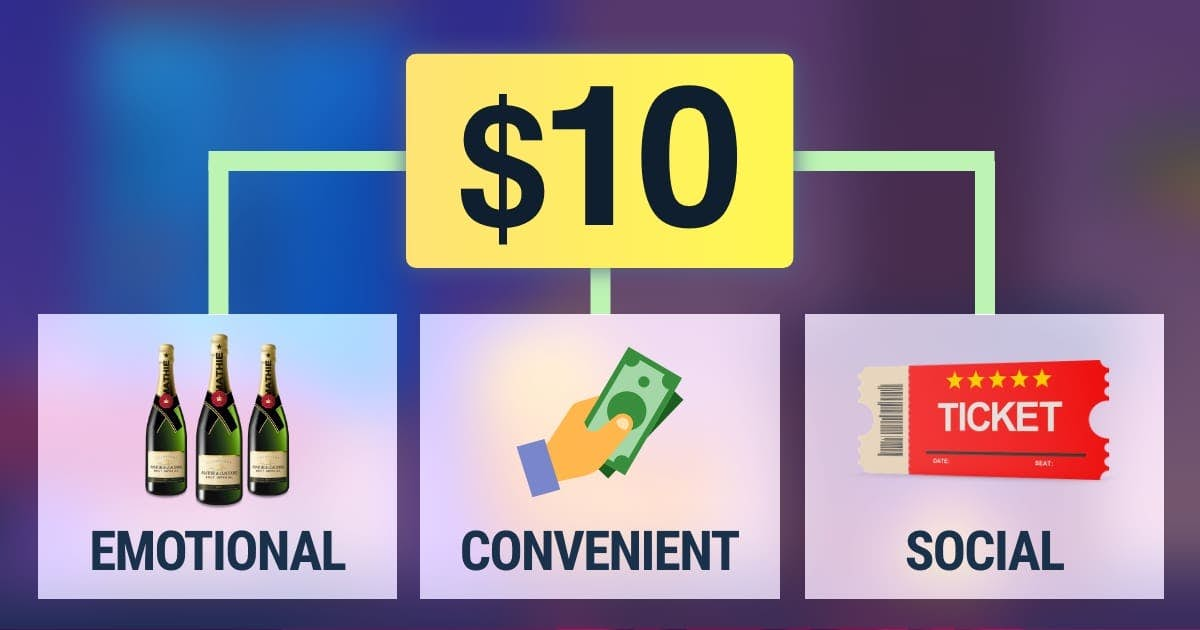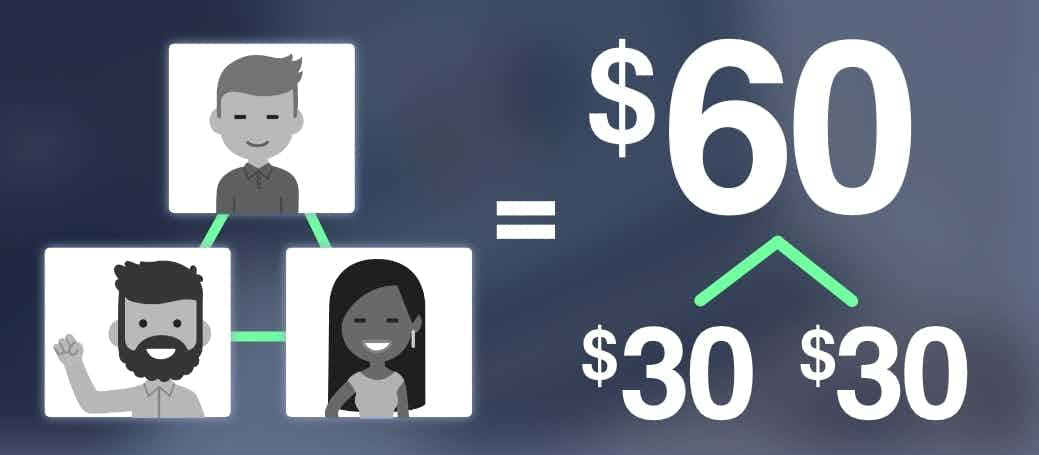Use Round Prices for Emotional, Convenient, or Social Products
$10 is easier to process than $9.37. This cognitive ease is useful in certain scenarios.

Overview
Round prices work better in these contexts:
1. Emotional
Round prices “feel right” — a sensation that matches the nature of emotional products. Customers preferred champagne with a round price ($40), yet they preferred a calculator with a sharp price ($39.72 and $40.29; Wadhwa and Zhang, 2015).
Though a later study failed to replicate the effect (Harms, Genau, Meschede, & Beauducel, 2018).
2. Convenience
Use round prices when customers want a fast checkout or quick transaction. Round prices trigger an “easy” sensation, so the purchase seems faster and easier (Wieseke, Kolberg, & Schons, 2016).
3. Social
Round prices are connected to many numbers because of their divisibility. And customers misattribute this numerical connectivity.
If somebody is buying a product to feel connected to other people, they prefer round prices because they confuse this price connectivity for social connectivity (Yan & Sengupta, 2021).

- Harms, C., Genau, H. A., Meschede, C., & Beauducel, A. (2018). Does it actually feel right? A replication attempt of the rounded price effect. Royal Society open science, 5(4), 171127.
- Janiszewski, C., & Uy, D. (2008). Precision of the anchor influences the amount of adjustment. Psychological Science, 19(2), 121-127.
- Wadhwa, M., & Zhang, K. (2015). This number just feels right: The impact of roundedness of price numbers on product evaluations. Journal of Consumer Research, 41(5), 1172- 1185.
- Wieseke, J., Kolberg, A., & Schons, L. M. (2016). Life could be so easy: The convenience effect of round price endings. Journal of the Academy of Marketing Science, 44(4), 474- 494.
- Yan, D., & Sengupta, J. (2021). The Effects of Numerical Divisibility on Loneliness Perceptions and Consumer Preferences. Journal of Consumer Research, 47(5), 755-771.
